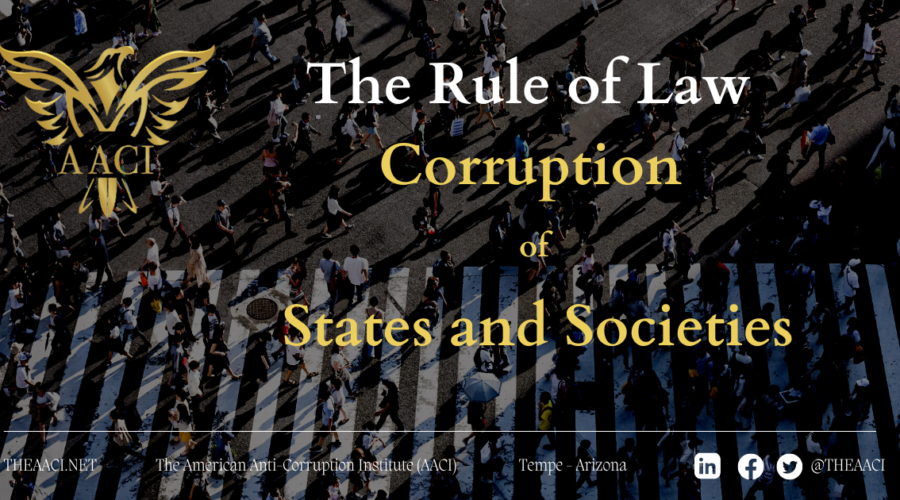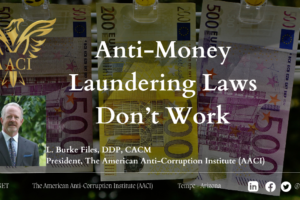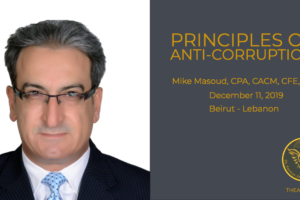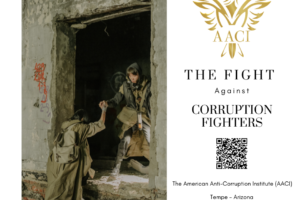Mike Masoud
January 15, 2023
Prevalence of the rule of law is one of the Ten Principles of Fighting Corruption promulgated by The American Anti-Corruption Institute (AACI). The lack of the rule of law in communities and countries can manifest in various ways. Some of the most well-known manifestations include:
Corruption: Corruption thrives in the absence of the rule of law. Bid rigging, government officials accepting bribes, embezzling public funds, widespread conflict of interest, low-quality audit profession, and low quality of education and health sector are among the examples that are prevalent when the quality of the rule of law deteriorates.
Human rights violations: Human rights violations become the norm rather than the exception. Individuals are exposed to torture, arbitrary arrest, and extrajudicial killings in countries where the rule of law is not upheld.
Political instability: Political parties and leadership tend toward corrupt practices to exacerbate the state of unrest to avoid the rule of law. Further, people’s trust and confidence in the government plummet. Therefore, protests, civil unrest, and even violent conflict should not be a surprise!
Economic inequality: Small and medium businesses would typically be unable to operate freely and fairly in the marketplace. Monopolies are an additional corrupt burden that deepens economic disparities. As a result, wealth and power are concentrated in a few people and companies.
Lack of access to justice: Lack of access to legal representation, biased or corrupt judges, corrupt legal system administration, and corrupt legal system financing are aspects of the ruined judiciary. As a result, individuals and businesses may not have access to fair and impartial justice in societies and communities where the quality of the rule of law is shameful or worse.

The absence of the rule of law in societies and countries results in many economic, social, political, and environmental distortions. Unsurprisingly, the numbers of the oppressed, the disadvantaged, and the poor are on the rise in many countries. It is also not surprising that some countries defraud their citizens when corrupt politicians collude with greedy representatives and corrupt judges. For example, “Mr Macron compared Lebanon’s banking system to a “Ponzi scheme”. He has called for more transparency in a financial system shrouded by secrecy laws, as once-illustrious, now-illiquid lenders contend with threats of government-led downsizing and restructuring.”1 Further, The Economist said about Lebanon, “What kind of government leaves a mountain of explosive chemicals lying around unsafely for the better part of a decade? The same kind that cannot agree on a budget for 11 years and that let its central bank run a Ponzi scheme to defend its unrealistic currency peg. The kind which is so deluded that it relies on aid, loans and remittances, spending far more than it collects in taxes.”2
The absence of the rule of law can have far-reaching and detrimental effects on a society and its citizens. Governments must uphold the rule of law to ensure stability, fairness, and prosperity for all.
Sources
1 Financial Times, ” Lebanese bankers plead their case to some new sheriffs,” September 29, 2020, https://www.ft.com/content/0838e10c-5481-4d76-a013-ad607a19b7d8 Accessed on January 15, 2023
2 The Economist, “A big blast should lead to big change in Lebanon,” August 6, 2020, https://www.economist.com/leaders/2020/08/06/a-big-blast-should-lead-to-big-change-in-lebanon Accessed on January 15, 2023
Photo by Ryoji Iwata on Unsplash












































